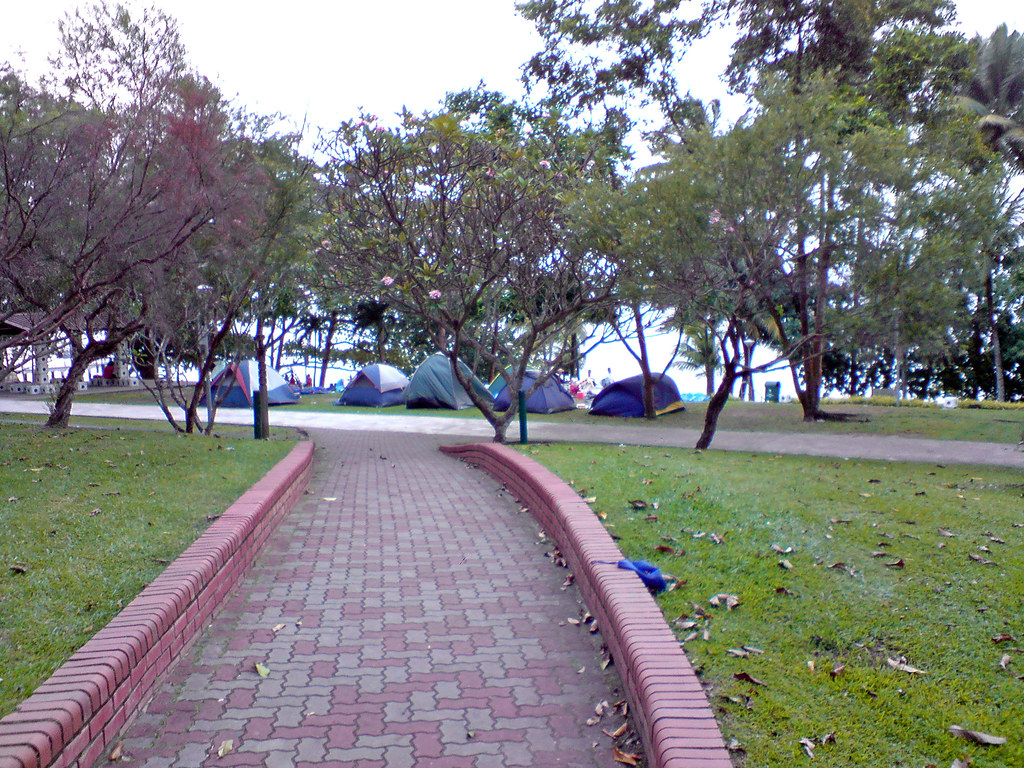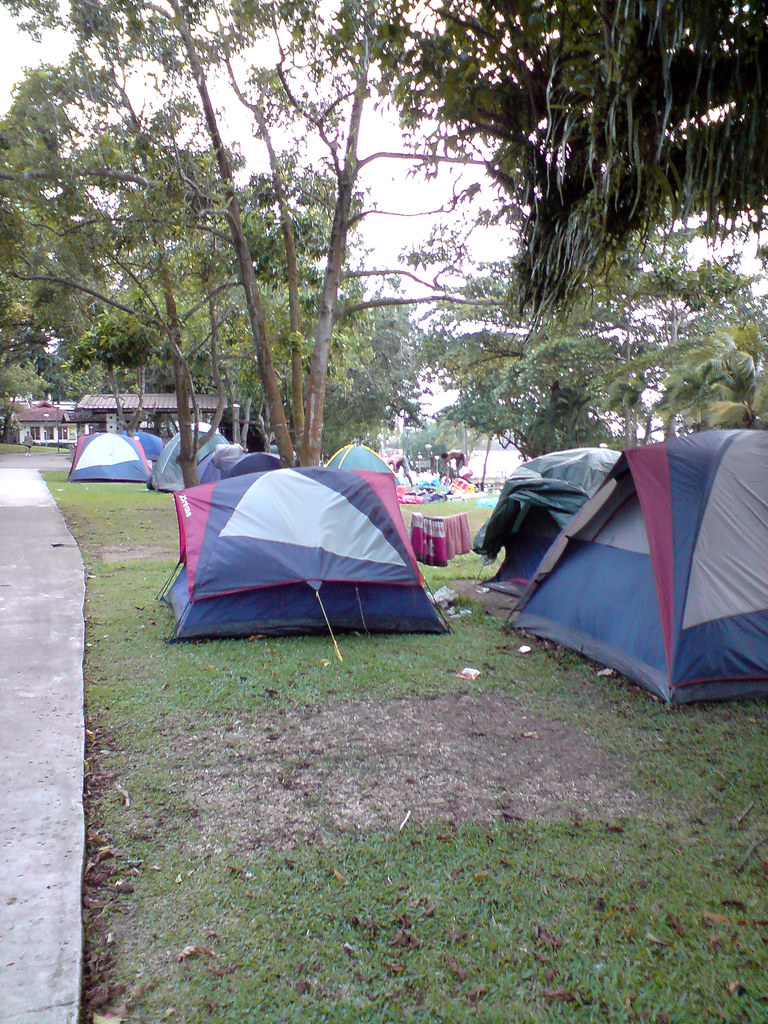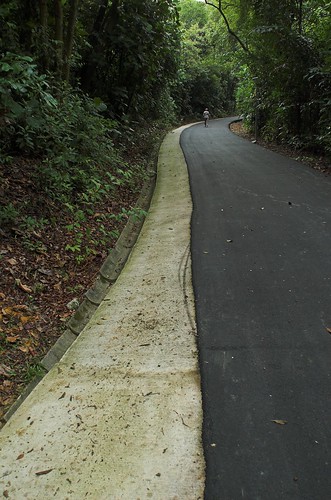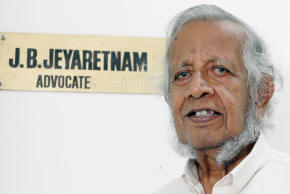I've been feeling troubled by the recent news of Singaporeans living in tents pitched at Sembawang Park. On one end of the public housing spectrum, The Pinnacle@Duxton stands as an epitome of high living standards, on the other end there are make shift camping tents occupied by those labeled as "displaced" by the vary same providers of public housing. It's as if the term displacement absolves guilt from the actual consequence of having homeless people.
I went down to Sembawang Park to take a look for myself. Altogether I counted 22 tents of various sizes though it was more difficult to count the actual persons living there and the number of family units. It is a sizeable problem because almost all the approved tent pitching space has been taken up. I've been staying in Sembawang for 39 years and this is certainly a sight new to me. I wonder what it signifies about the societal changes in my life time.
Dusk has come along with rain clouds and cold winds. I feel displaced.





